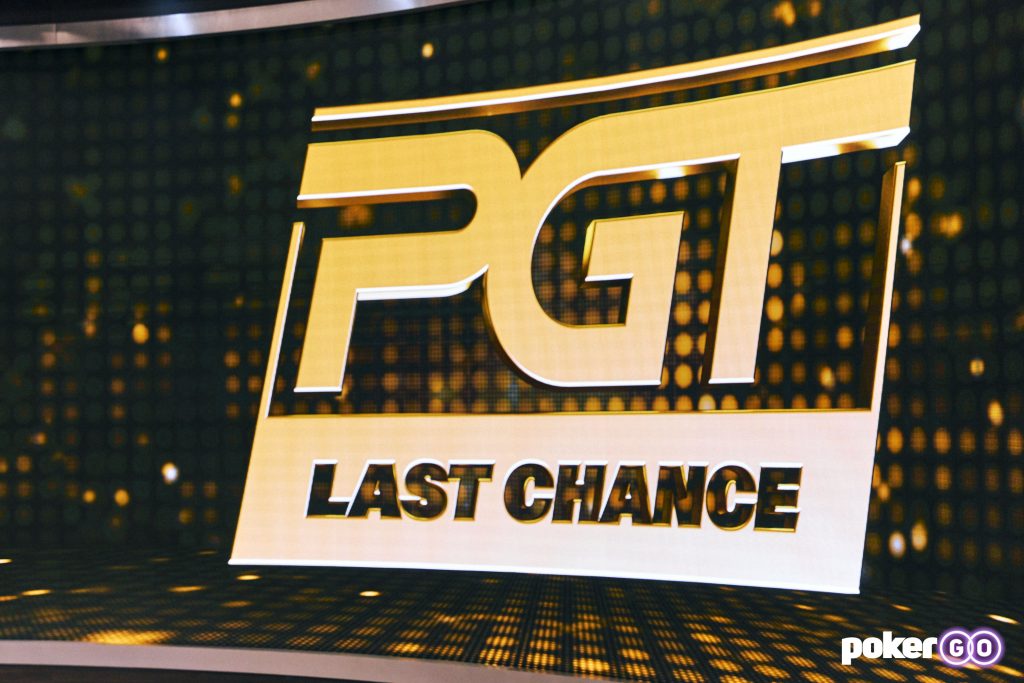“Manage Your Bankroll: Money Separate from the Main Game” is a crucial concept for anyone involved in gambling or trading activities where financial risk is present. This principle emphasizes the importance of maintaining a clear distinction between the funds allocated for playing the game and an individual’s personal finances. The ability to effectively manage a bankroll is a fundamental skill that can determine the longevity and success of a player’s engagement in any game of chance or market investment. It involves setting aside a specific amount of money that is used exclusively for betting or trading, thus ensuring that the financial impact of potential losses does not extend to essential personal funds. Proper bankroll management strategies help individuals maintain control over their spending, make informed decisions, and mitigate the risks associated with their financial activities.
Strategies for Keeping Your Poker Money Separate from the Main Game
 Manage Your Bankroll: Money Separate from the Main Game
Manage Your Bankroll: Money Separate from the Main Game
In the world of poker, your bankroll is the lifeblood of your game. It’s the sum of money you’ve set aside exclusively for playing poker, and managing it effectively is as crucial as knowing when to hold ’em or fold ’em. The art of bankroll management is often overlooked by novices, who may see it as a mere footnote in their strategy. However, seasoned players understand that it’s a cornerstone of long-term success. Let’s delve into why keeping your poker money separate from the main game is not just a good idea, but a fundamental strategy for anyone looking to play seriously.
Firstly, consider the psychological aspect. When you merge your everyday finances with your poker bankroll, it’s easy to lose track of how much you’re spending or winning. This can lead to emotional decisions, such as chasing losses or playing in games that are too rich for your financial comfort. By maintaining a distinct separation, you create a buffer that helps you make decisions based on logic rather than emotion. It’s a safeguard that ensures you play within your means and stay level-headed, whether you’re on a winning streak or facing a run of bad luck.
Moreover, treating your poker bankroll as a separate entity enables you to track your performance accurately. Just as a business would not mix its investment capital with the personal funds of its owner, a poker player should not confuse their personal finances with their gaming funds. This clear delineation allows you to analyze your wins and losses, adjust your strategies, and make informed decisions about moving up in stakes or staying put. It’s a tool for reflection and growth, providing you with tangible evidence of your progress or areas that need improvement.
Furthermore, having a dedicated bankroll acts as a buffer against the inherent variance of the game. Poker is as much about skill as it is about luck, and even the most skilled players can experience downswings. By only using money that you can afford to lose, you protect yourself from financial hardship. It’s a form of risk management that ensures you can weather the storms and continue playing without jeopardizing your financial stability.
Additionally, bankroll management is about discipline. It teaches you to respect money and to understand the value of each bet you make. When you know that your bankroll is finite and separate from your main finances, you’re less likely to make impulsive moves or take unnecessary risks. This discipline extends beyond the poker table, helping you develop better financial habits in other areas of your life.
Lastly, consider the professional approach. If you aspire to play poker at a higher level, treating it as a business is essential. Professional players know that their bankroll is their working capital, and they manage it with the same seriousness as an investor would manage their portfolio. By adopting this mindset, even if you’re not playing professionally, you set yourself up for success and ensure that you’re always playing your best game.
In conclusion, managing your bankroll by keeping it separate from your main finances is not just a strategy—it’s a necessity for anyone serious about their poker game. It provides psychological benefits, aids in performance tracking, offers financial protection, instills discipline, and aligns with a professional approach to the game. So, as you sit down at the table and shuffle up and deal, remember that the real game isn’t just about the cards—it’s about the smart management of your money, which is truly separate from the main game.
The Importance of Managing a Separate Bankroll for Poker Success

Manage Your Bankroll: Money Separate from the Main Game
In the world of poker, success is not just about having the right skills or the perfect poker face. It’s also about smart financial management, particularly when it comes to your bankroll. A separate bankroll is not just a recommendation; it’s a cornerstone of a successful poker strategy. This dedicated sum of money, set aside exclusively for playing poker, is your ticket to staying in the game and avoiding the pitfalls that can lead to financial ruin.
Imagine stepping into a high-stakes game with the rent money or your child’s college fund. The pressure to win would be immense, and poker is a game where pressure can lead to costly mistakes. By keeping your living expenses and your poker funds distinct, you alleviate the stress of potentially losing essential funds. This separation allows you to play with a clear mind, focused on the game rather than the fear of financial loss.
Moreover, a separate bankroll acts as a buffer against the inevitable downswings in poker. Even the most skilled players experience losing streaks, and without a dedicated bankroll, these losses could bleed into your personal finances, creating a domino effect of financial troubles. With a separate bankroll, you ensure that you can weather these storms and remain in the game, learning from your losses and waiting for the tide to turn in your favor.
Furthermore, managing a separate bankroll is about discipline. It forces you to set limits on your play and stick to them. This discipline extends beyond the poker table, helping you to develop better financial habits in all areas of life. It’s about knowing when to walk away, when to step up your game, and how to adjust your strategies based on the size of your bankroll. This level of control is what separates the amateurs from the pros.
Additionally, a separate bankroll allows you to track your progress and evaluate your performance objectively. By monitoring the ebb and flow of your poker funds, you gain valuable insights into your playing style, your strengths, and areas that need improvement. This data is crucial for refining your approach and moving up the ranks in the poker world.
But how do you determine the size of your bankroll? A good rule of thumb is to have enough to cover several buy-ins for the stakes you play. This amount varies from player to player, but the key is to ensure it’s an amount you’re comfortable with and one that won’t affect your ability to meet your financial obligations. Remember, it’s not about having a massive bankroll but having a managed one.
In conclusion, the importance of managing a separate bankroll for poker success cannot be overstated. It’s a practice that safeguards your personal finances, enhances your mental game, instills discipline, and provides a clear picture of your poker journey. Whether you’re a casual player or aspiring to go pro, take this advice to heart: keep your bankroll separate and watch your poker game—and your financial stability—flourish. After all, in the game of poker, as in life, those who manage their resources wisely are often the ones who come out on top.
Tips for Allocating and Maintaining a Dedicated Poker Fund
 Title: Manage Your Bankroll: Money Separate from the Main Game
Title: Manage Your Bankroll: Money Separate from the Main Game
When it comes to playing poker, whether you’re a seasoned pro or a casual enthusiast, one of the most critical aspects of the game often goes overlooked: bankroll management. It’s the silent partner in your poker journey, the disciplined approach that can make the difference between a fleeting hobby and a sustainable pastime. To truly excel and enjoy the game to its fullest, it’s essential to allocate and maintain a dedicated poker fund, separate from your main financial resources.
Imagine your bankroll as the foundation of a house. Just as a sturdy foundation supports the structure above, a well-managed bankroll underpins your ability to play with confidence and resilience. By keeping this money separate from your main finances, you create a buffer that protects your livelihood from the inherent volatility of the game. This separation ensures that the rent is paid, the pantry is stocked, and the lights stay on, regardless of the outcomes at the table.
Allocating a dedicated poker fund starts with an honest assessment of your financial situation. It’s crucial to only use money that you can afford to lose, as poker is a game with no guarantees. This isn’t about being pessimistic; it’s about being pragmatic. By setting aside a sum that won’t impact your ability to meet your essential needs, you’re giving yourself the freedom to play without the added pressure of financial strain.
Once you’ve established your bankroll, the next step is to manage it with discipline. This means setting limits on buy-ins and stakes relative to the size of your fund. A common rule of thumb is to never buy into a game for more than 5% of your total bankroll. This strategy helps mitigate the risk of ruin and ensures that you can weather the inevitable downswings without depleting your resources.
Moreover, it’s important to regularly review and adjust your bankroll. If you experience a winning streak, it might be tempting to escalate the stakes, but caution is key. Incremental increases, based on a consistent track record of success, are a more sustainable approach. Conversely, if you hit a rough patch, it may be wise to step down in stakes or take a break altogether to reassess your strategy and protect your fund.
Another aspect of bankroll management is the psychological benefit it provides. By mentally categorizing this money as separate from your main finances, you reduce the emotional weight of each hand played. You’re less likely to make impulsive decisions driven by the fear of financial loss because you know that, win or lose, your essential needs are already covered. This detachment allows you to focus on the strategic elements of the game, making decisions based on logic rather than emotion.
In conclusion, managing a dedicated poker fund is not just about numbers and rules; it’s about cultivating a mindset that values long-term success over short-term gains. It’s about recognizing that the true skill in poker lies not just in how you play the cards, but in how you manage the resources that allow you to stay in the game. By keeping your bankroll separate and adhering to a disciplined management strategy, you’re not only protecting your financial well-being, but you’re also setting the stage for a more enjoyable and potentially profitable poker experience. Remember, the main game isn’t just about the hands you’re dealt; it’s also about the wisdom with which you manage your stake in it.
How to Effectively Manage Your Poker Money to Stay Ahead of the Game
 Title: Manage Your Bankroll: Money Separate from the Main Game
Title: Manage Your Bankroll: Money Separate from the Main Game
In the world of poker, your bankroll is your lifeline. It’s the sum total of your war chest, the financial fuel that powers your play, and the buffer that keeps you in the game through the inevitable ups and downs. Effectively managing your poker money is not just a skill—it’s an art form that separates the casual players from the pros. To stay ahead of the game, you must treat your bankroll with the respect it deserves, keeping it separate from your main financial activities and ensuring it’s used wisely.
First and foremost, it’s crucial to understand that your poker bankroll should be money you can afford to lose. This isn’t about being pessimistic; it’s about being realistic. The nature of poker means that even the most skilled players will face losses. By only using money that isn’t earmarked for essential expenses, you protect yourself from the stress and potential financial hardship that can come from a losing streak.
Once you’ve established a dedicated bankroll, the next step is to set clear rules for how you’ll use it. This means deciding on the stakes you’ll play and sticking to them. It’s tempting to jump into higher stakes games when you’re feeling confident, but this can quickly deplete your bankroll if you’re not ready. By playing within your means, you maintain control over your finances and give yourself room to learn and grow as a player.
Another key aspect of bankroll management is tracking your results. This isn’t just about tallying wins and losses; it’s about understanding your performance over time. By keeping detailed records, you can identify patterns in your play, adjust your strategies, and make informed decisions about when to move up in stakes or when to take a step back. This level of self-awareness is invaluable in the long run, as it helps you to continuously refine your approach to the game.
Moreover, it’s important to have a clear plan for how you’ll handle winnings. Some players choose to reinvest a portion of their profits back into their bankroll, while others set aside a percentage for cashing out. The key is to have a strategy that balances growth with reward. After all, part of the joy of poker is reaping the financial benefits of your skill and hard work.
Lastly, don’t underestimate the psychological aspect of bankroll management. The confidence that comes from knowing you’re playing within your means can have a profound impact on your performance at the table. It allows you to make decisions based on strategy rather than financial pressure, and it keeps you focused on the long-term goal of consistent profitability.
In conclusion, managing your poker bankroll is about much more than just numbers; it’s about discipline, strategy, and self-awareness. By keeping your poker money separate from your main financial activities, setting clear rules for play, tracking your results, planning for winnings, and maintaining a healthy psychological approach, you position yourself to stay ahead of the game. Remember, the most successful poker players are those who treat their bankroll with the same care and attention as they do their cards. Play smart, manage wisely, and the tables will always be a place of opportunity.Conclusion:
Effectively managing your bankroll by keeping your gambling funds separate from your main financial resources is crucial for responsible gaming. This strategy helps to prevent overspending and ensures that the money allocated for gaming does not impact your essential living expenses or savings. By maintaining this separation, players can enjoy their gaming experience without the risk of financial strain or the potential negative consequences that can arise from poor money management.
















+ There are no comments
Add yours